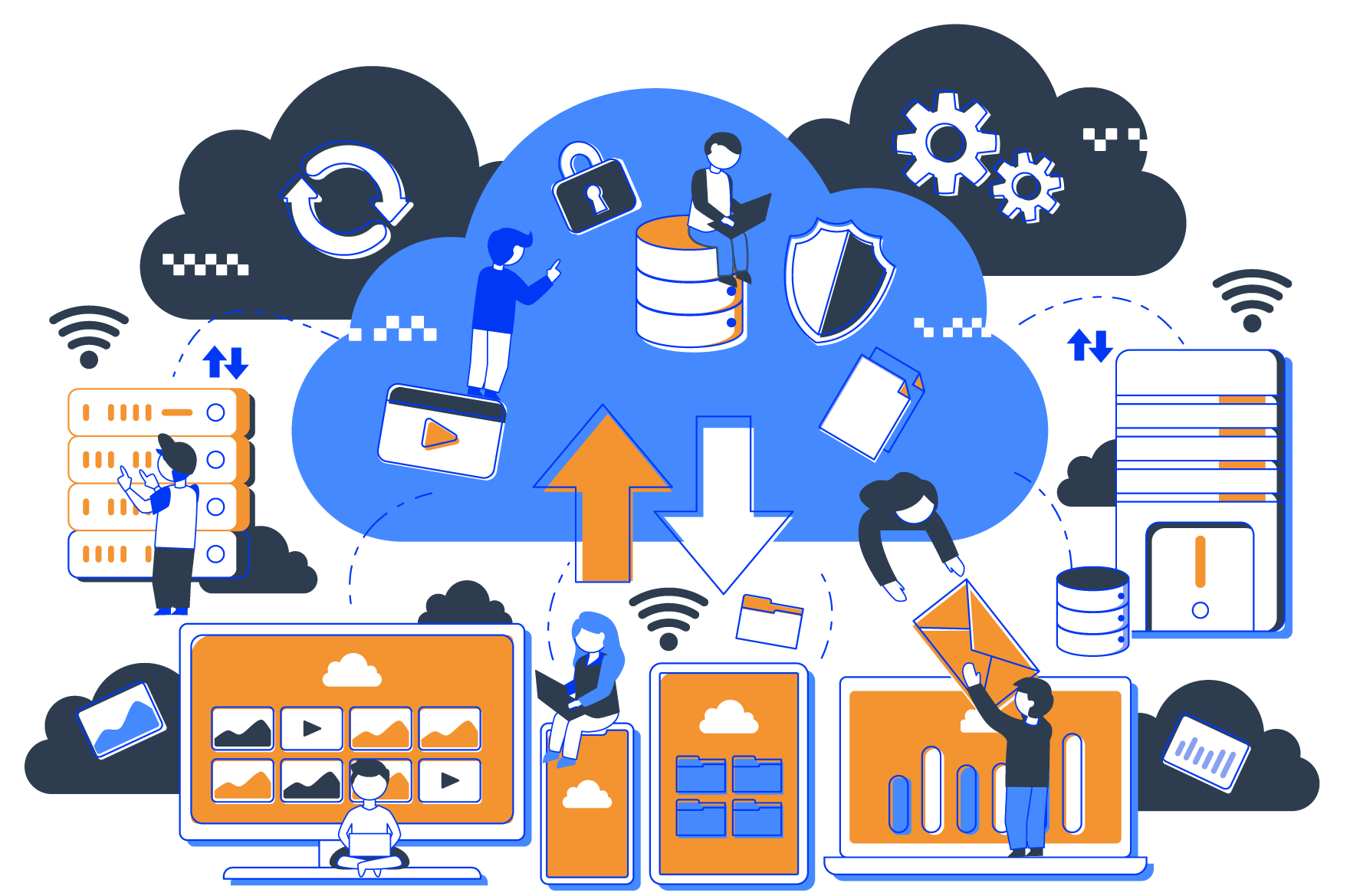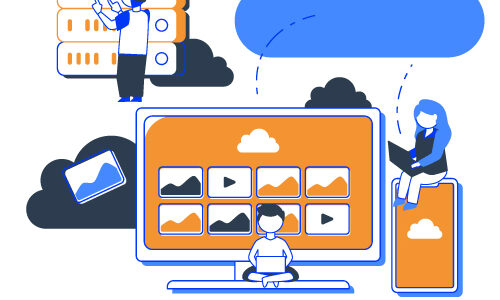Cloud Computing
What is Cloud Computing?
Cloud Computing is a metaphor used by Technology or IT Services companies for the delivery of computing requirements as a service – servers, databases, storage, software, networking, analytics, etc. - to a community of end-recipients. These computing requirements are delivered over the Internet (hence “the cloud”) to offer the end user modern, flexible resources and economies of scale.

Benefits of Cloud Computing
Many cloud computing service companies offer a pay-as-you-go system, which only charges you for services that you use. This system offers advantages for small startups and growing enterprises alike. The sheer scalability of such a system offers virtually infinite digital versatility at a price that is always fair and equivalent to services rendered. It also gives the ability to handle large bursts of traffic without having to pay for the hardware to handle the burst at all times.
Another advantage of cloud computing is that the resources you pay for are often centralized within regions. You get to decide where in the world your computing is done, allowing you to minimize latency. You can also choose to host your data in multiple locations for redundancy. The data can also be encrypted to significantly improve security.
How Cloud Computing Works
End users access cloud based applications through a web browser or a light weight desktop or mobile app while the business software and data are stored on servers at a remote location. Cloud application providers strive to give the same or better service and performance than if the software programs were installed locally on end-user computers.
At the foundation of cloud computing is the broader concept of infrastructure convergence (or Converged Infrastructure) and shared services. This type of data center environment allows enterprises to get their applications up and running faster, with easier manageability and less maintenance, and enables IT to more rapidly adjust IT resources (such as servers, storage, and networking) to meet fluctuating and unpredictable demands of businesses.
You might also like
- QuickBooks in the Cloud: The Sky’s the Limit
- Database Cloud Services in Orange County: Scale at Will
- Distinguishing Between Public, Hybrid, & Private Cloud Solutions
- Quickbooks Cloud Hosting: How to Lower your IT Budget
- How Secure Cloud Technology Mitigates DDoS Attacks
- Suggested Responses to Recent AWS Cloud Outages from Industry Experts
- Creating Cloud Solutions That Benefit Your Company and Streamline Your Work Process
- What is a Cloud Client?
- Private Cloud as a Service
- What is a Community Cloud?
- Private Cloud vs. Virtualization
- Infrastructure as a Services (Iaas)


